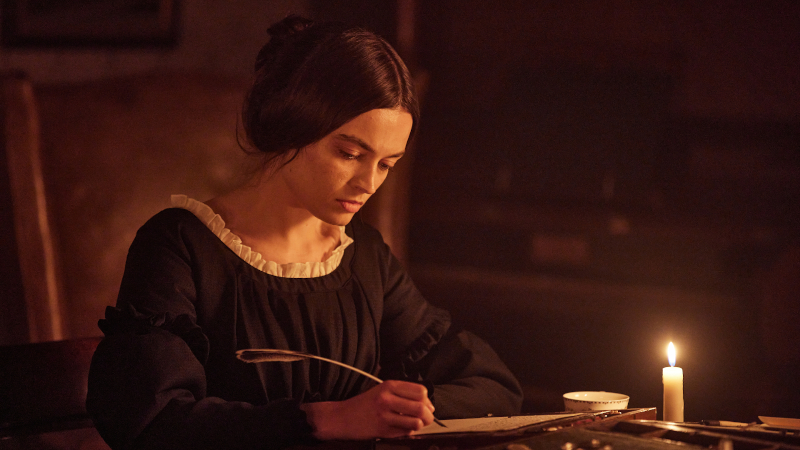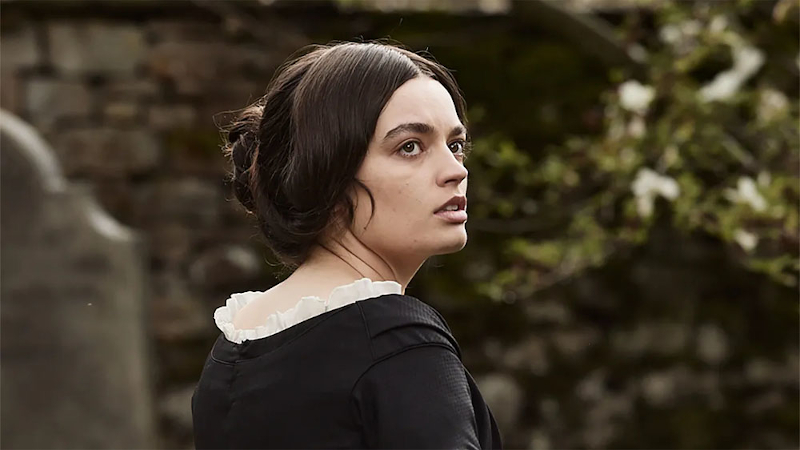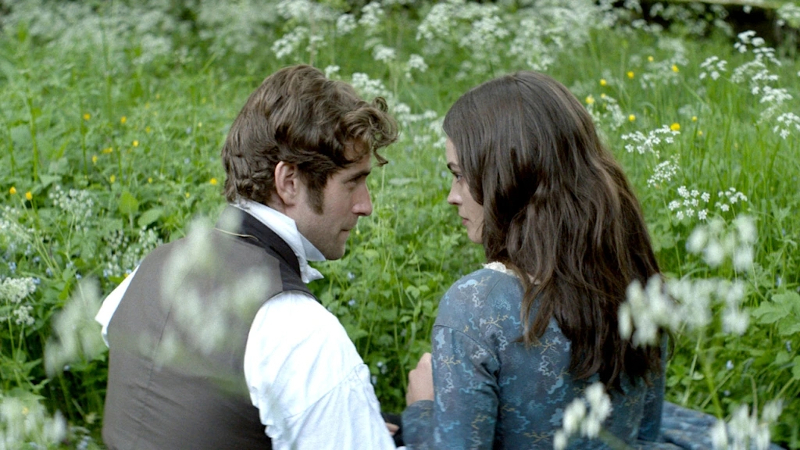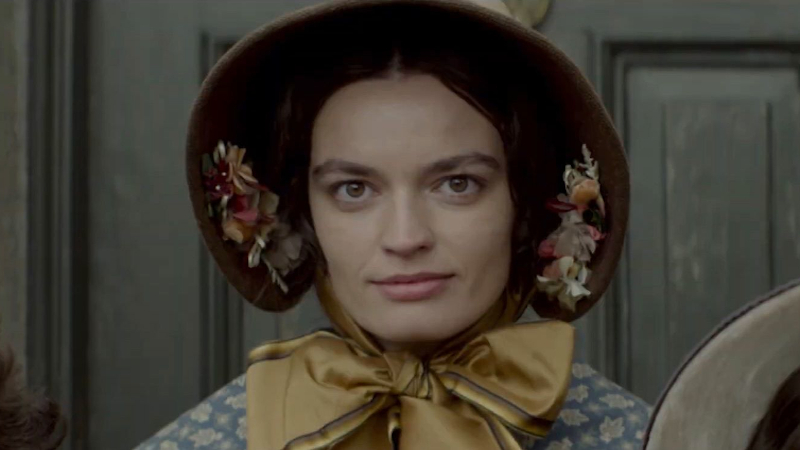Director – Frances O’Connor – 2022 – UK – Cert. 15 – 130m
varies between ** and ****
An imagined account of how Emily Brontë wrote Wuthering Heights – out in UK cinemas on Friday, October 14th
The three Brontë sisters Charlotte (Alexandra Dowling), Emily (Emma Mackey), and Anne (Amelia Gething) live with their brother Branwell (Fionn Whitehead) and their chapel minister father Patrick (Adrian Dunbar) in the large parsonage in the West Riding of Yorkshire’s village of Haworth. The three girls have a lively, literary imagination, make up numerous stories for their own amusement, and spend much time outside in the landscape of the moors. A young curate Weightman (Oliver Jackson-Cohen) arrives in the village, piquing the girls’ interest, and Charlotte soon departs for a distant teaching post. Emily likes her own company and spends much time alone on the moors.

Branwell is accepted by the Royal Academy to study painting, but drops out and returns to the village, where he and Emily get into mischief together, chiefly by spying on one of the neighbours at night through their window and getting chased off the premises several times by dogs before Branwell eventually gets caught and has to endure punishment from father. Both Branwell and Emily embark on physical, romantic attachments, he with the woman of the house they’ve been clandestinely watching, she with Weightman. Branwell also experiments with Laudanum, becoming an addict and a drunk.
Emily’s life provides much of the inspiration for her sole novel Wuthering Heights before dying at the tragically young age of 30.
It’s a very uneven film and far too long, but when it’s good it’s very good indeed. It starts off well enough with Yorks moors landscape and Mackey’s Emily lying on the ground feeling the long grass between her fingers and thinking up stories, her freedom constantly in tension with having to go back to the house for meal times and her father ready to mete out discipline when his young adult children step out of line. Emily discovers a tattoo declaring ‘Freedom in thought’ on the arm of Whitehead’s Branwell and adopts it as a personal motto, the pair of them shouting the slogan from the hillsides.

There’s a palpable tension between this freedom in thought (which later extends to physical sex and drug abuse) and the morality preached by her father and Weightman from the pulpit of the local chapel. The concept of transgression springs to mind, and the film seems to be at its strongest when playing with this notion. Perhaps both script and direction could have explored and honed this idea further to produce a more powerful and effective film.
The siblings’ transgressive peering in through the neighbours’ window at night leads Branwell into a highly effective scene where he and the object of his affections get passionate, largely unobserved (except by Emily) on the back row at a local public concert event. Less effective is the sex scene montage which commences when Emily and Weightman find themselves trapped by torrential rain in an old, abandoned house on the moors and which conversely seems to lose focus without knowing exactly where it’s going. Which is a pity, because before that the chemistry between the pair of them seems to work while Jackson-Cohen’s Weightman is convincingly caught between a carnal desire for Emily and a Christian injunction to avoid immorality.

The Yorkshire milieu is there for the exploiting, yet the film doesn’t seem to quite know how to pull this off either. The world of the film comprises the large parsonage in which the family live, the chapel where both father and his curate preach, the open moors, the occasional empty building, torrential rain, local concerts. There seems to be very little contact with ordinary people in the town and Yorkshire accents are almost non-existent. On the other hand, excepting the occasional scene of incomprehensible dialogue, the sound mixing is striking, particularly the sequences in the rain where the sound is so immersive, encompassing and convincing that you can’t believe you’re not being physically soaked to the skin.
Directing her first feature from her own script, seasoned actress O’Connor admirably avoids the clogged stasis that so often besets costume drama by means of much handheld camera, casts the piece reasonably well to produce decent performances and keeps everything constantly moving. These strengths are however undercut by a tendency to meander, and you may find your interest waning several times over in the less focused moments only for it to pick up again whenever the film recovers its grip.
Emily is out in cinemas in the UK on Friday, October 14th.
Trailer:
